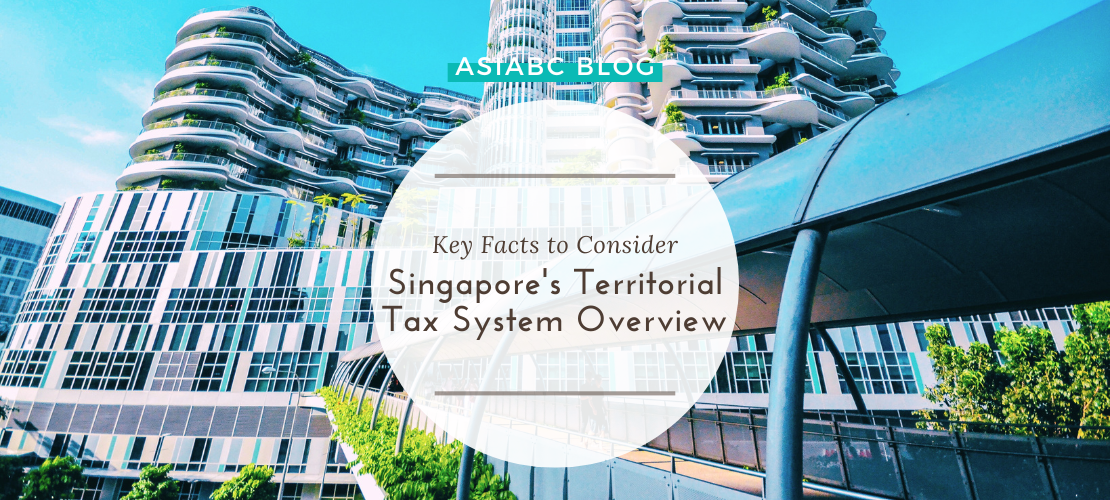Key Facts to Consider : Singapore’s Territorial Tax System Overview
Contributed by AsiaBC | 15 Jun 2020
Singapore Corporate Tax : What Foreign Business Owners Must Know
Singapore continues to attract foreign entrepreneurs with its business-friendly policies, transparent governance, and strategic location in Southeast Asia. Among its many advantages is a highly efficient and straightforward tax system. This updated guide explains the essentials of Singapore’s corporate tax framework – including how it works, what obligations exist, and how to stay compliant – tailored to businesses owned by foreigners.
- The Tax Model Built for Growth
- Why Tax Residency in Singapore Matters to Your Startup
- Your Startup’s Must-File Tax Forms
- Breaking Down SG’s Tax Calendar for Startups
- Your Shortcut to Easy, On-Time Tax Filing Starts Here
The Tax Model Built for Growth
Singapore’s taxation regime is overseen by the Inland Revenue Authority of Singapore (IRAS). The system is known for its territorial basis of taxation and single-tier corporate tax structure, both of which are highly favorable to companies operating or expanding regionally.
Key features of the system :
- Territorial Taxation – Only income sourced in Singapore or remitted into Singapore is taxed.
- Single-Tier Corporate Tax – Corporate profits are taxed at the company level. Dividends distributed to shareholders are not taxed again.
- Digital Filing via e-File – IRAS encourages electronic tax filing. Most filings and correspondences are done online through its secure portal.
Types of taxes relevant to companies :
- Corporate Income Tax (CIT)
- Goods and Services Tax (GST)
- Stamp Duties
- Withholding Tax (on certain cross-border payments)
- Property Tax (relevant if the company owns real estate in Singapore)
Corporate Income Tax Rate :
- Flat 17% on a company’s chargeable income
- Partial tax exemptions and start-up tax relief still apply for qualifying companies, reducing effective tax rates for many SMEs and new businesses.
Why Tax Residency in Singapore Matters to Your Startup
Understanding tax residency is essential for foreign business owners, as it influences access to tax treaties and foreign income exemptions.
How tax residency is determined :
- A company is a tax resident of Singapore if its control and management (e.g. board meetings and major decisions) are exercised in Singapore.
- Place of incorporation alone does not determine tax residency.
- Residency is evaluated annually and may change depending on how and where decisions are made.
Taxable foreign-sourced income includes income that is :
- Remitted or brought into Singapore
- Used to settle business debts in Singapore
- Used to buy moveable property brought into Singapore
IRAS will assess whether income is “Singapore-sourced” based on the facts and substance of how and where the income is generated, not merely its origin on paper. This assessment varies by industry and business model.
Your Startup’s Must-File Tax Forms
All companies – local or foreign-owned – are subject to annual tax filing obligations. Here’s what you need to file and when.
- Estimated Chargeable Income (ECI)
- Must be filed within 3 months of the end of the financial year.
- Exemptions apply to companies with annual revenue ≤ S$5 million and nil ECI.
- Newly incorporated companies must still file their ECI based on their first financial year-end.
- Corporate Tax Return – Form C-S / C
- Form C-S is a simplified version for qualifying small companies.
- Form C is used by larger or more complex entities.
- Submission deadline:
- 30 November (paper filing)
- 15 December (electronic filing via e-File)
Important for new companies :
- IRAS generally sends the first Form C-S/C filing notice about two years after incorporation.
- However, if your company receives income or closes accounts earlier, you are required to file ECI and Form C-S/C regardless of whether a notice was issued.
Breaking Down SG’s Tax Calendar for Startups
Singapore’s tax timeline revolves around three main terms : Financial Year (FY), Basis Period, and Year of Assessment (YA). Understanding how these relate is key to avoiding late filings or missed deadlines.
- Financial Year (FY) – The 12-month accounting period your company chooses. Common year-ends include 31 December, 31 March, and 30 June.
- Basis Period – The income period assessed in the following YA.
- Year of Assessment (YA) – The year when IRAS assesses and taxes the income earned in the basis period.
This preceding-year basis means your tax liability is always assessed after income has been earned, allowing for better forecasting and financial planning.
Your Shortcut to Easy, On-Time Tax Filing Starts Here
Singapore’s corporate tax regime is designed to be predictable, efficient, and supportive of growth – especially for foreign-owned companies and startups. But even with low tax rates and streamlined processes, non-compliance can result in penalties or missed opportunities for exemptions and relief.
If you’re expanding into Singapore or operating a company here, understanding tax residency rules, income remittance obligations, and filing timelines will help you stay ahead.
Wanna know the secret to seamless compliance and growth in Singapore – with expert guidance tailored just for you? Tap into insights that fit your venture – WhatsApp +852 9578 0528 or email at business@asiabc.com.hk to get started.



![Asia Business Centre (Asia Business Centre (AsiaBC) [HK+SG Bank Account Opening / Company Formation / Company Secretary / Accounting & Tax])](https://asiabc.com.hk/wp-content/uploads/Blog-Banner-Building-Your-Company-Globally-Singapore-Business-Registration-Dos-Donts-80x80.png)




